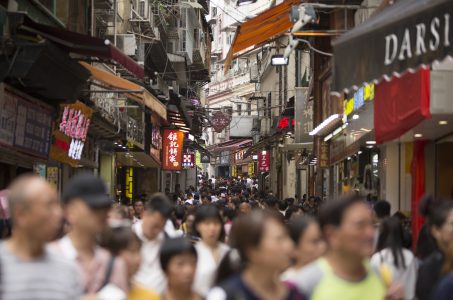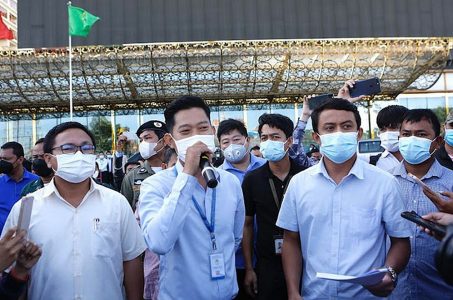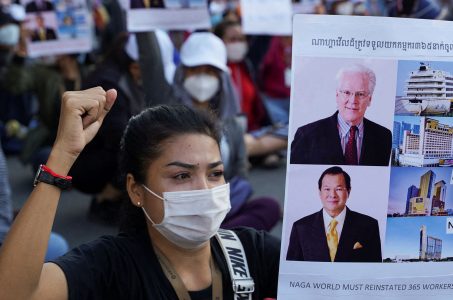Wynn Macau Trims Daily Cash Burn to $2 Million, Guangdong Border Opening Expected to Help
Posted on: July 17, 2020, 10:24h.
Last updated on: July 17, 2020, 11:31h.
Wynn Macau burned about $2 million a day during the time that travel restrictions were in place between mainland China, Hong Kong, and the gaming center. But that figure could improve with the elimination of Guangdong province’s quarantine protocol.

On Wednesday, Guangdong lifted a 14-day healthcare seclusion policy applying to all travelers returning to the province from Macau. Analysts and operators view that decision as essential to Macau’s recovery hopes because as the province closest to Macau, Guangdong accounted for 45 percent of the visits to the casino hub last year.
In a recent interview with CNBC, Allan Zeman, Wynn Macau’s non-executive chairman, said the operator burned approximately $2 million per day during the period in which travel controls were in place. However, that figure is an improvement over the $2.5 million per day the operator went through in the first quarter.
Obviously, business has not been good, because the borders have been closed for Hong Kong, Guangdong, and China,” Zeman told CNBC.
On Thursday, Moody’s Investors Service said news of Guangdong doing away with its Macau quarantine policy is credit positive for the special administrative region’s (SAR) concessionaires because mainland China accounts for 71 percent of the visits to the gaming mecca.
Feeling the Burn
A modest rebound in the second half of this year — which plenty of analysts are forecasting — could help Macau operators slow their cash burn rates.
In a note out earlier this month, JP Morgan Securities said Macau’s six concessionaires went through a combined $578 million in the second quarter just to keep the venue open. Wynn Macau accounted for a hefty percentage of that sum, burning through $99 million per month, according to the bank.
A “moderate gross gaming revenue (GGR) rebound” in the second half will help concessionaires trim those cash burn rates, says Moody’s. However, operators likely need GGR to return to 35 percent to 50 percent of 2019 levels to break even on the basis of earnings before interest, taxes, depreciation and amortization (EBITDA).
Analysts believe the initial recovery in Macau will be stoked by premium mass market players and VIPs, which is to Wynn’s benefit because it caters to higher-end gamblers.
More Help Needed
The loosened travel protocols with Guangdong are a step in the right direction for Macau. But the SAR’s gaming-dependent economy still needs some more help.
For example, a strict quarantine policy with Hong Kong remains in effect, and there’s still no word on when Beijing will resume issuance of individual visit scheme (IVS) visas — the travel permit used by many on mainland China to enter Macau.
In 2019, about half of all Chinese tourists visiting the gaming center used IVS to get there.
“We expect demand from Guangdong can recover quickly to approximately 70 percent of normal levels (equals to 80 percent to 90 percent for VIP; 50 percent to 60 percent for mass) if and when visas are resumed,” notes JPMorgan.
Related News Articles
Macau Golden Week Less Restricted Than Chinese New Year, Says UBS
NagaWorld Weekend Strike in Cambodia Does Little to Disrupt Operations
Most Popular
Las Vegas Overstated F1 Race’s Vegas Impact — Report
Vegas Strip Clubs Wrestle in Court Over Animal Names
Most Commented
-
End of the Line for Las Vegas Monorail
— April 5, 2024 — 90 Comments -
Mega Millions Reportedly Mulling Substantial Ticket Price Increase
— April 16, 2024 — 6 Comments -
Long Island Casino Opponents Love New York Licensing Delays
— March 27, 2024 — 5 Comments -
Nearly Abandoned Mall Outside Vegas Soon to Have Only One Tenant
— March 12, 2024 — 5 Comments
















No comments yet